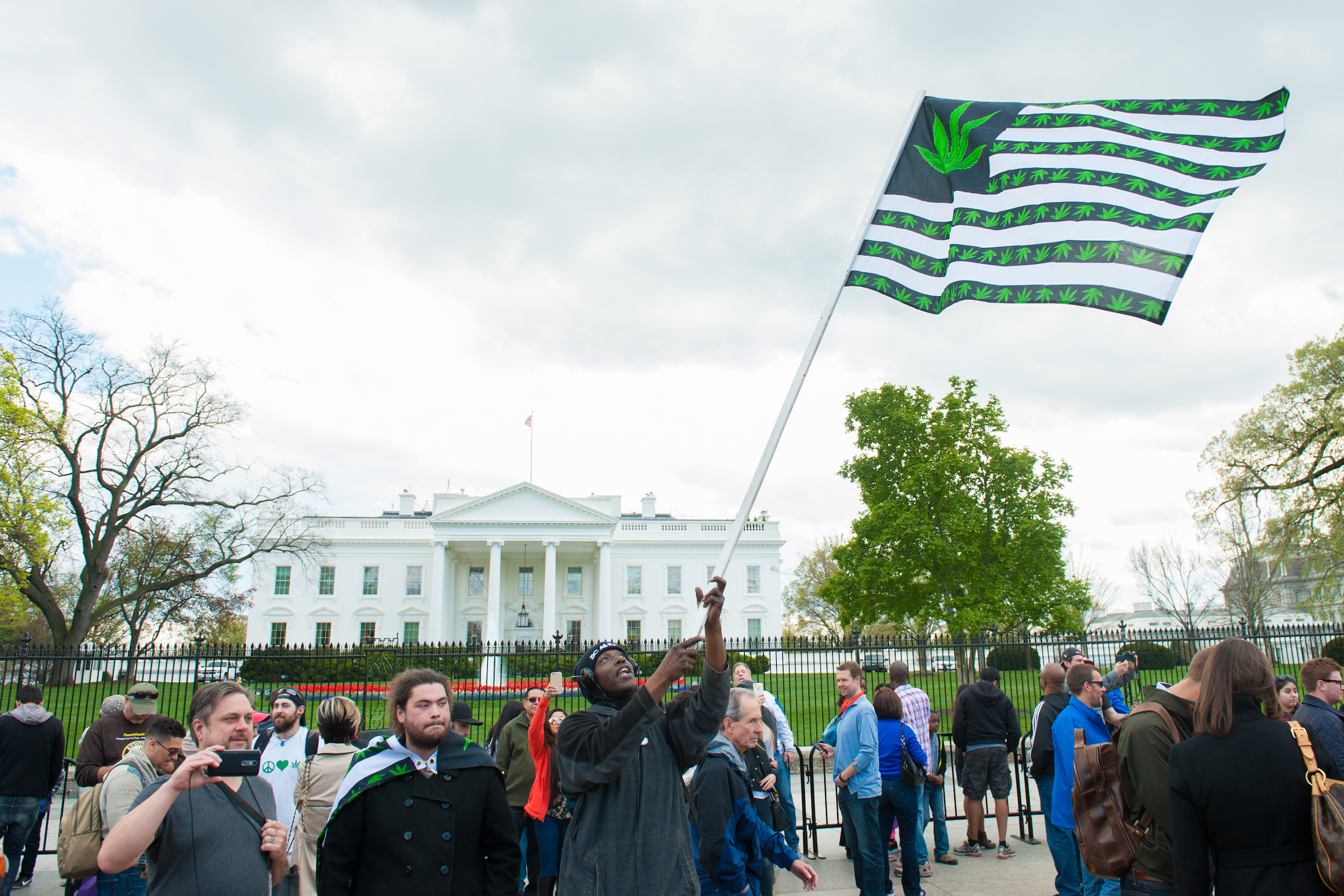White House Press Secretary Sean Spicer relayed the Trump administration’s first official comments on legal cannabis this past Thursday. Unfortunately, his remarks involved zero scientific consideration when he compared adult-use cannabis to the ongoing opioid epidemic:
“When you see something like the opioid addiction crisis blossoming in so many states around this country, the last thing we should be doing is encouraging people,” Spicer said. “There is still a federal law that we need to abide by when it comes to recreational marijuana and drugs of that nature.”
The opioid crisis is definitely cause for concern, with 91 people dying each day from opioid overdoses,according to the Centers for Disease Control.
Cannabis meanwhile continues to have a fatal overdose rate of zero per year. In fact, nobody has ever died from a cannabis overdose and scientists say it’s estimated that you’d have to consume 1,500 pounds of pot in 15 minutesfor a fatal reaction – a near impossible feat.
But what about the addiction similarities? We know that the opiate crisis is partially because people unknowingly get hooked. So how does cannabis compare based on the facts?
In 1997, the American Chemical Societypublished a survey of health officialson the inherent addictiveness of six commonly used drugs. Nicotine scored the highest at 99, alcohol 81, caffeine got a score of 70 - and marijuana? 22. Meaning that in reality, cannabis has a lower addiction score that a cup of coffee.
Looping cannabis in with other substances (in this case opioids) really makes no sense on a scientific or public health level. This plant's remarkable safety profile sets it apart even from products like aspirin, which can cause acute liver failure. Plus, cannabis is114 times safer than alcohol.
Even the whole 'gateway myth' that cannabis leads to the abuse of harder drugs has been completely debunked several times. For example, in 1999the Institute of Medicine reported: "There is no conclusive evidence that the drug effects of marijuana are causally linked to the subsequent abuse of other illicit drugs."

To make things even more interesting, states that have legalized medical cannabis have seen a25% drop in opioid-related fatalities. The reasons for this decline are at least two-fold. First, people are finding cannabis to be a safer, more effective substitute for opioids to treat their pain and suffering. Secondly, cannabis is proving to be an effective tool inhelping people kick their addictionsand alleviating withdrawal symptoms such as nausea, insomnia, muscle spasms, pain, anxiety, and much more.
Look, it's the 21st century and we have enough science, research, and understanding of cannabis to stop treating it like it's so evil. In every state where cannabis has become legal for adult use, thousands of jobs have been created,teen-use has dropped, millions of dollars in tax revenue has been generated for the state, and the illegal black market has shrunk. The outdated fears of how legalization will hurt our society have not come to pass, and it's time our administration gets with the times.
Should the feds indeed go after 'recreational' cannabis as Spicer indicated, they will have to answer to tens of millions of people who have voted YES on legalization initiatives. Now with California, Massachusetts, Maine, and Nevada onboard, roughly 21% of the U.S. population lives under recreational or adult-use cannabis laws. Further a record 60% of the nation supports legal cannabis, according to the latest Gallup poll.
In other words, if the feds want to go directly against the will of the people, inflate spending, throw otherwise law-abiding citizens in jail, and push the cannabis plant back into the black market, the administration's promised crackdown could be their perfect storm.
Max Simon is the CEO of Green Flower Media, the world's leading provider of credible cannabis education online.
This is an opinion column.The thoughts expressed are those of the author.

